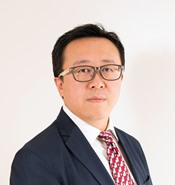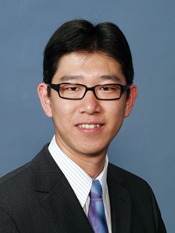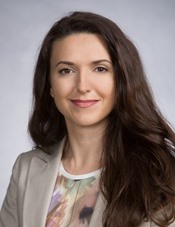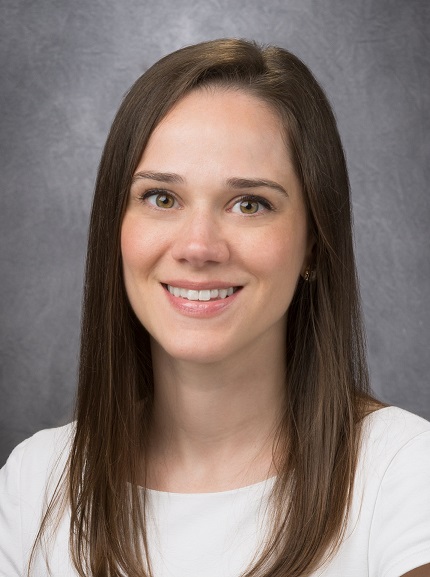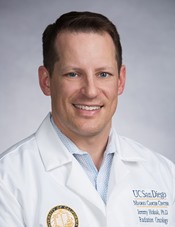Mentorship: Elevating Clinical and Research Careers
K Sheng1*, X Jia2*, B Pogue3*, K Sheng4*, M Bazalova-Carter5*, K Sheng6*, K Surry7*, Y Lee8*, I Dragojevic9*, G Aldosary10*, P Taylor11*, J Hoisak12*, (1) UCLA School of Medicine, Los Angeles, CA, (2) The University of Texas Southwestern Medical Ctr, Garland, TX, (3) University of Wisconsin-Madison, Madison, WI, (4) UCLA School of Medicine, Los Angeles, CA, (5) University of Victoria, Victoria, BC, CA, (6) UCLA School of Medicine, Los Angeles, CA, (7) London Regional Cancer Program, London, ON, CA, (8) Elekta, Toronto, ON, CA, (9) UC San Diego, San Diego, CA, (10) King Abdulaziz Medical City, Riyadh, SA, (11) UT MD Anderson Cancer Center, Houston, TX, (12) UC San Diego, Chula Vista, CA
Presentations
TU-AB-206-0 (Tuesday, 7/12/2022) 7:30 AM - 9:30 AM [Eastern Time (GMT-4)]
Room 206
Mentorship: Elevating Clinical and Research Careers
Part 1: Mentoring graduate students for a creative and productive research career
Abstract:
Medical physics graduate programs carry the critical missions of clinical and research training. The research aspect is particularly challenging due to multiple factors, including limited training time and resources, and that the students typically would choose a resident program over postdoctoral training after graduation, placing them at a disadvantageous position to compete with biologists and biomedical engineers who complete a minimum of two years of postdoctoral training. On the other hand, the future of medical physics as a heavily technology‐driven field lands on the shoulders of graduate students. The success of these trainees as researchers cannot be overstated. The symposium will provide a platform to share the experiences among several graduate programs in different academic and clinical settings. The lessons learned from these programs will be valuable to many AAPM members. Part 1 Speakers are: Xun Jia PhD, Brian Pogue PhD, Ke Sheng PhD, Magdalena Bazalova-Carter PhD.
Part 1 Learning objectives:
1. Identify and align graduate education goals with the program strengths.
2. Describe the minimum intellectual and physical resources for a successful research‐oriented graduate program.
3. Plan how to accelerate student readiness for an independent research career.
Part 2: Mentorship, to take that next step
Abstract:
Much effort and focus of formal and informal mentorship is directed towards students and trainees, but all physicists can benefit from mentorship to achieve change and advancement through all phases of a career. Medical physics often has a linear professional trajectory, with little opportunity for rapid advancement or change within our careers. There are many reasons why physicists may not seek leadership positions or advancement through the healthcare administrative structure. These real or perceived professional barriers can also be exacerbated by lower glass ceilings encountered by women and minority groups, which increase inequities. Key to addressing these barriers is effective mentorship; however, it can be a challenge to identify mentorship opportunities beyond the early career years or when working in non-academic centers, smaller community practices, or non-clinical work environments. This part of the session aims to promote and reinforce the importance of mentor support in all its forms, including: formal, informal, peer-to-peer, sponsorship and coaching, and through all career phases and pathways. Mentorship is not always about differences in age and position but can be a peer mentoring relationship based on differences in skills and individual strengths. The richest mentoring relationship encourages growth and meaningful development and can encourage us to reach our potential during the entire arc of our professional lives. In this symposium, speakers from a diversity of career pathways in medical physics, including academic, clinical, industry and consulting will describe how they leveraged their network and found the necessary resources and mentorship to support their development goals. Part 2 Speakers are: Young Lee PhD, Irena Dragojević PhD, Ghada Aldosary PhD, Paige Taylor MS.
Part 2 Learning Objectives:
1. Learn how to support a mentorship practice throughout a Medical Physics career, in all its forms (formal, informal, peer-to-peer, sponsorship and coaching).
2. Provide current and future leaders with tools to model and support an effective, nurturing, inclusive mentorship style within a group.
3. Learn how to find mentors when there are no obvious mentors around to relate to.
Handouts
- 175-63404-16291659-186900-1200076463.pdf (Irena Dragojevic)
- 175-63405-16291659-186891-2091050727.pdf (Ghada Aldosary)
- 175-63403-16291659-183536-1534691145.pdf (Young Lee)
- 175-63406-16291659-183971-1606132415.pdf (Paige Taylor)
- 175-63407-16291659-183415-1687292394.pdf (Jeremy Hoisak)
Keywords
Not Applicable / None Entered.
Taxonomy
Not Applicable / None Entered.
Contact Email



